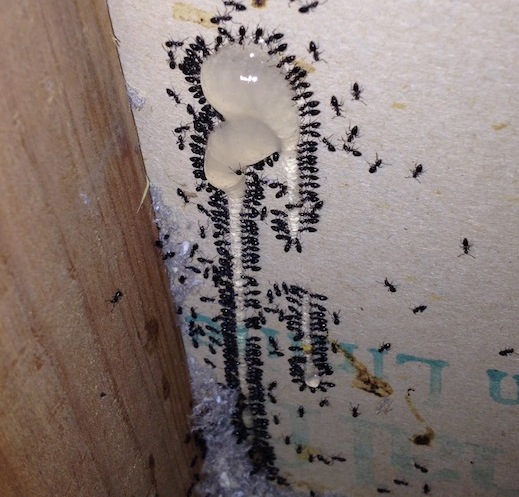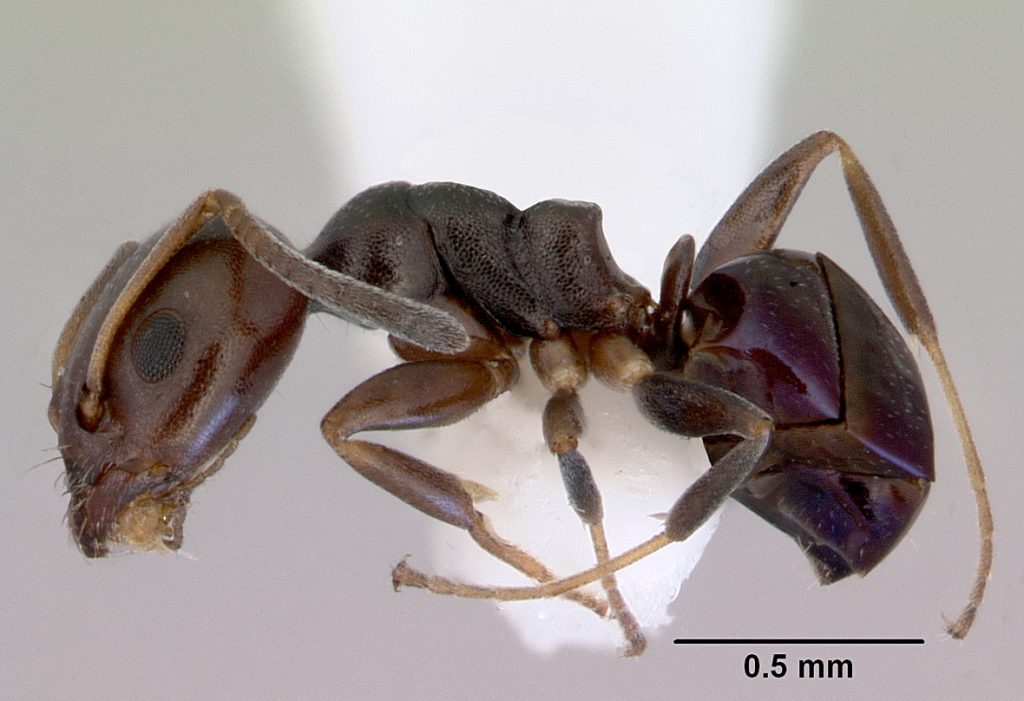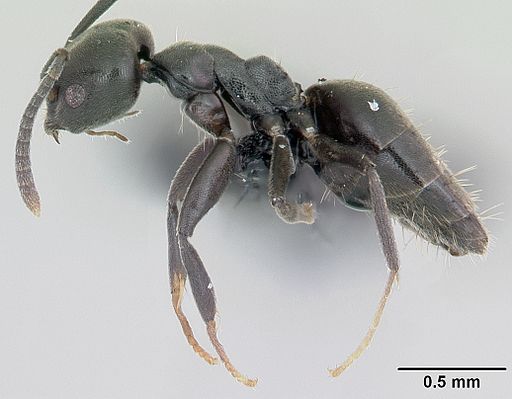Getting rid of black ants, the professional way

Although not very scientific, many people talk about black ants and brown ants. For many homeowners, black ants in the house is a very common problem. Although, many homeowners will try and carry out a DIY treatment, these are often doomed to fail. Partly this is due to not using the correct products for the species concerned, but largely this is due to the fact that the necessary products for successful ant control are not available through supermarkets or hardware stores.
As with any pest control, it’s important to correctly identify the species present, as this determines the best treatment method. In Brisbane, there are 2 common species of black ant that cause problems in homes: the black house ant and the white-footed house ant.
Here’s how we get rid of them at AllPro Pest Control…
Black house ant

Outside, the black house ant (Ocetellus glaber) will live outside under rocks and logs, but also in hollows in trees. However, they also love nesting in the wall voids and roof cavities of buildings, in particular on or between sheet insulation.
They are actually dark brown to black in colour, and also have light coloured ends to their legs which can cause them to get confused with the white-footed house ant. They can be identified by the rounded shape of their abdomen and the single, flat petiole between the abdomen and thorax.
Black house ants build single nests (sometimes quite large), with a single queen. This makes it relatively easy to control (if you can find the nest!). If we find the nest, we will treat it directly with an insecticide spray or dust. However, more often than not, it cannot be located and so we need to treat with a gel ant bait. We place the bait near foraging ants and the ants take the bait back to the nest and spread it to the rest of the colony. With only one queen to kill, success is almost guaranteed with colony elimination expected within 3 days or so.
White-footed house ant

White footed house ant (Technomyrmex spp.) is one of the most difficult to control. Not only can their nests be very large, but they often have multiple nests as part of the same colony. Uniquely, up to half of the colony made up of intercastes – secondary female reproductives which can produce eggs just like the founding queen. To eliminate a colony all of these reproductive needs to be killed.
White-footed house ants nest at or above soil level. Outside, nests in leaf litter and under rocks and logs are common. Indoors they will nest in multiple locations throughout a building, particularly in the wall voids and roof cavity.
Compared to the black house ant, the white-footed house ant has a flatter, more heart shaped abdomen with a more obvious point at the end of the abdomen. It is probably less shiny than the black house ant and also has no raised flat petiole between the abdomen and thorax.
With multiple nests forming parts of the same the colony, each containing a large number of reproductives, eliminating the whole colony using baits alone is virtually impossible – as we cannot guarantee getting the bait to all the reproductives in all the nest, which is needed for colony elimination. As such, when we treat for white-footed house ants we tend to use a combination of ant baits and special non-repellent sprays.

We apply these sprays to the areas where they are active – they often build significant and long-lasting foraging trails – as well as to suspected nesting areas. Ants walk across these treated areas and pick up the insecticide. Not only does the insecticide kill the ants that contact it directly, but as it is slow acting they can pass it on to other nest mates when groom each other, magnifying it’s effect. It can take a week or so to achieve colony elimination but, depending on the size of the infestation, it is not uncommon for a second supplementary treatment to be required in order to ensure the colony is eliminated.
Ant control is a challenge, but by using experts like AllPro Pest Control, you can get rid of these annoying pests. At AllPro as we are confident in our ant treatment process, all our ant treatments come with a 6-month warranty.

